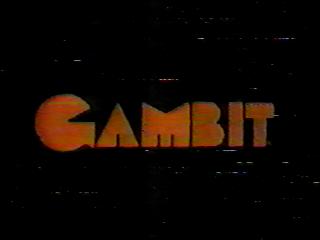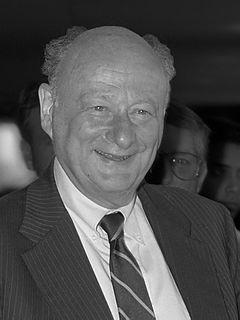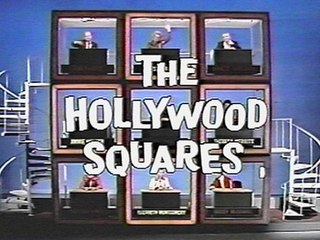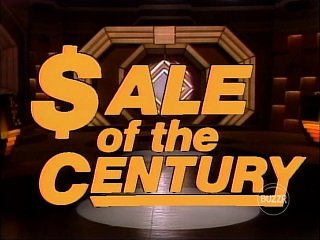This article relies largely or entirely on a single source .(January 2015) |
| Blockbusters | |
|---|---|
 | |
| Created by | Steve Ryan and Mark Goodson [1] |
| Directed by | Ira Skutch (1980–82) Marc Breslow (1987) [1] |
| Presented by | Bill Cullen (1980–82) Bill Rafferty (1987) [1] |
| Narrated by | Bob Hilton (1980–82) Rich Jeffries (1982, 1987) [1] |
| Theme music composer | Bob Cobert (1980–82) Music Design Group (1987) [1] |
| Country of origin | United States |
| No. of episodes | 372 (1980–82) 85 (1987) |
| Production | |
| Executive producer(s) | Ira Skutch (1980–82) Robert Sherman (1987) [1] |
| Producer(s) | Robert Sherman (1980–1982) Diane H. Janaver (1987) |
| Production location(s) | NBC Studios Burbank, California |
| Running time | 22 minutes |
| Production company(s) | Mark Goodson-Bill Todman Productions (1980–1982) Mark Goodson Television Productions (1987) |
| Release | |
| Original network | NBC |
| Original release | Original series: October 27, 1980–April 23, 1982 Revived series: January 5, 1987–May 1, 1987 |
| Chronology | |
| Related shows | Blockbusters (United Kingdom) |
Blockbusters is an American game show which had two separate runs in the 1980s. Created by Steve Ryan for Mark Goodson-Bill Todman Productions, contestants answer trivia questions to complete a path across or down a game board of hexagons. The first series of the show debuted on NBC on October 27, 1980, and aired until April 23, 1982. In the first series, a team of two family members competed against a solo contestant. Blockbusters was revived on NBC from January 5 to May 1, 1987, but featured only two solo contestants competing.

Steve Ryan is an American author who specializes in the creation of games and puzzles. Ryan is also a television game show historian and creator. Ryan was a long-standing staff member of Goodson-Todman Productions and Mark Goodson Productions, where he created the concept for the game show Blockbusters. Ryan also created the rebus puzzles for the game show Classic Concentration. He was also a writer and creator of puzzles for the game shows Body Language, Catch Phrase, Password Plus and Trivia Trap.

Mark Leo Goodson was an American television producer who specialized in game shows, most frequently with his business partner Bill Todman, with whom he created Goodson-Todman Productions.
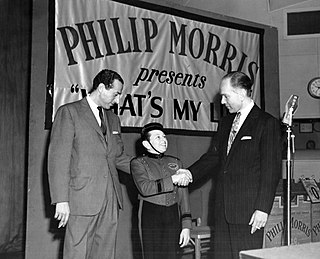
William Selden Todman was an American television producer and personality born in New York City. He produced many of television's longest running shows with business partner Mark Goodson.
Contents
- Game play
- 1980–82
- Gold Rush/Gold Run
- 1987 changes
- Home game
- Episode status
- Reception
- International versions
- See also
- References
- External links
Bill Cullen hosted the 1980–82 version, with Bob Hilton as announcer. Johnny Olson and Rich Jeffries substituted for Hilton on occasion, with Jeffries taking over for the final two weeks. Bill Rafferty hosted the 1987 version, with Jeffries announcing the entire run.
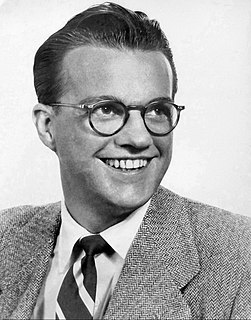
William Lawrence Francis Cullen was an American radio and television personality whose career spanned five decades. His biggest claim to fame was as a game show host; over the course of his career, he hosted 23 shows, and earned the nickname "Dean of Game Show Hosts". Aside from his hosting duties, he appeared as a panelist/celebrity guest on many other game shows, including regular appearances on I've Got a Secret and To Tell the Truth.

Robert Wesley Hilton is an American television game show personality. He hosted The Guinness Game, a revival of Truth or Consequences, and the 1990 revival of Let's Make a Deal for one season and replaced by Monty Hall, and announced on several other shows.
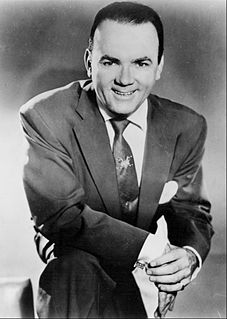
John Leonard Olson was an American radio personality and television announcer. Olson is perhaps best known for his work as an announcer for game shows, particularly the work he did for Mark Goodson-Bill Todman Productions. Olson was the longtime announcer for the original To Tell the Truth and What's My Line? early in his career and spent over a decade as the announcer for both Match Game and The Price Is Right, and he had been working on the latter series at the time of his death.
